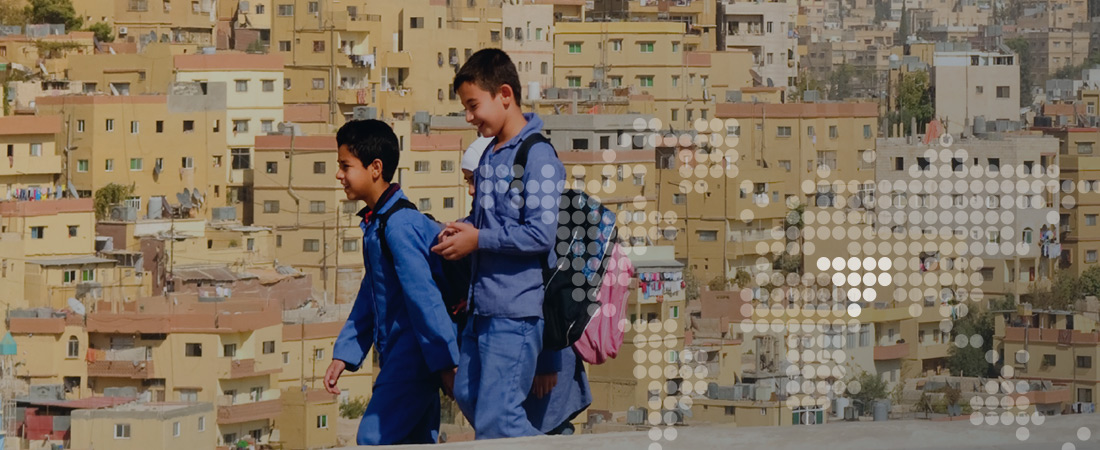
EDC programs in Jordan reduce barriers to education and civic participation.
In the Middle East, EDC is building teacher capacity and professionalism, an important step toward ensuring that students have access to high-quality educators and teaching methods. We have also helped draft technology implementation plans for ministries of education and led projects to rebuild schools in disrepair.
Our workforce development programs in the region have enabled women and out-of-school youth to learn the skills needed for economic prosperity. Through support for vocational training centers, career counseling, and implementation of our Work Right Now! curricula, EDC is giving more people a viable path to employment.
Projects
Resources
This study reviews student assessment data collected from 15 EDC projects to determine the impact of interactive radio instruction (IRI) on student achievement in hard-to-reach areas.
In this action memo, we consider proposals for more effective donor investment in school health and nutrition.
Ruwwad is a Palestinian Youth Empowerment Project, implemented by EDC and funded by USAID.
This program note summarizes key gender issues in livelihoods and workforce development programs and discusses EQUIP3's approach to addressing gender, using examples from specific EQUIP3 youth projects to illustrate lessons learned.
This paper explores the potential of interactive audio instruction (IAI) as a cost-effective strategy for improving the resiliency of education systems.
As part of EDC’s Work Ready Now (WRN) program, WRN Biz builds youths’ core skills in business planning, business start-up, and ongoing business management.
This resource focuses on how distance education technology benefits teachers and teaching.
This guide provides a conceptual framework, instruments, and tools for designing and implementing youth assessments in developing countries.
This report outlines the need to work together with new and unlikely allies, other than education actors alone, to reimagine how our interconnected systems—health, education, economic development, and the protection of our planet—can work toward Sustainable Development Goal 4: Quality Education and beyond.
With funding from the Foreign, Commonwealth & Development Office (FCDO) and in partnership with Oxford University’s Blavatnik School of Government (BSG), the Learning Generation Initiative (formerly the Education Commission) produced the DeliverEd Final Report, Deliberate Disruptors: Can Delivery Approaches Deliver Better Education Outcomes? The following are the supporting research products produced in interpretation of the research.
